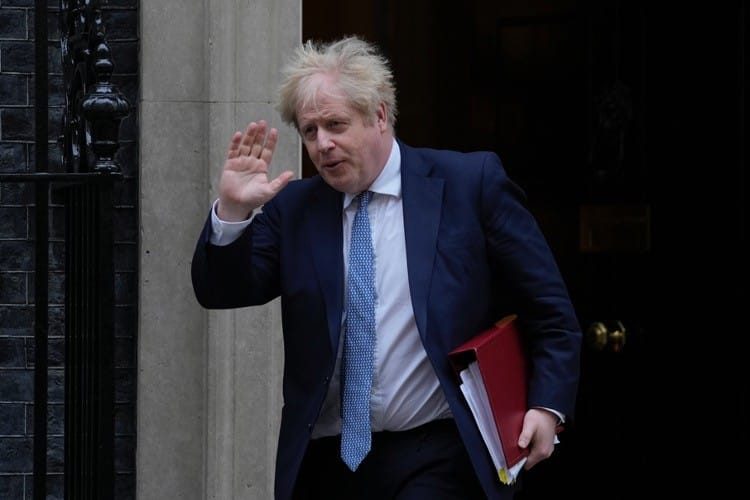
U.K. Prime MInister Boris Johnson may be singing Gloria Gaynor’s disco standard I Will Survive in the halls of Number 10 Downing Street while appointing his new communications minister, Gutto Hari, but questions as to whether Britain’s top politician will indeed “survive” are festering in the wake of the “Partygate” scandal that is currently wreaking havoc in the highest levels of U.K. government.
Following the release of the so-called Sue Gray Report, written by the civil servant of the same name, which claimed that at least a dozen social gatherings took place at Number 10 Downing Street, in the cabinet office, and one in the Downing Street flat used by the prime minister, all in contravention of national lockdown rules that were in place at the time to slow the spread of COVID-19.
Gray concluded that “failures of leadership and judgment” had allowed these events to go forward at a time when millions of British citizens were denied the ability to meet with family and friends, and further stated that these gatherings “should not have been allowed to take place”
Gray also reported that there are some in the administration who were troubled by the obvious COVID hypocrisy but were either unwilling or too intimidated to speak out against the parties. Gray also noted an “excessive drinking culture” at Number 10 and in the cabinet overall.
Gray concluded that leadership culture at Number 10 was too fragmented and complicated and that too much was asked of Principal Private Secretary Martin Reynolds, who some expected to be the primary “fall guy” for the allegations of the social gatherings.
In addition to Gray’s complaint, London’s Metropolitan Police is also investigating what it calls “the most serious and flagrant” breaches of COVID-19 protocols.
According to police commissioner Cressida Dick, the police probe will concentrate on cases in which “there was evidence that those involved knew or ought to have known that what they were doing was an offense; where not investigating would significantly undermine the legitimacy of the law; and where there was little ambiguity around the absence of any reasonable defense.”
Several key Johnson aides have already resigned due to allegations in the Gray report, including Chief of Staff Dan Rosenfield, Principal Private Secretary Martin Reynolds, Director of Communications Jack Doyle, and Policy Director Munira Mirza, who all resigned on Thursday of last week due to ties with the Partygate scandal. Elena Narozanski, a Policy Unit member, has also resigned as a result of the scandal.
Mirza, who had worked with Johnson for 14 years, was not personally implicated in the scandal but had an issue with Johnson referencing the Jimmy Savile sexual assault affair against children while discussing the Partygate controversy.
“This was not the usual cut and thrust of politics; it was an inappropriate and partisan reference to a horrendous case of child sex abuse,” Mirza reportedly told Johnson in her letter of resignation.
“I hope you find it in yourself to apologise for a grave error of judgment made under huge pressure,” Mirza reportedly told Johnson. “It is not too late for you but, I’m sorry to say, it is too late for me.”
Top Tories have become rattled at what they see as erratic behavior from the prime minister’s office, with one unnamed Conservative House of Lord’s member telling Foreign Policy magazine that the latest resignations “feel like a tipping point,” which has some members of the party “seriously thinking whether Boris is the right person to lead us into the next election. The question to answer is: Can he rebuild trust among the party and among voters, or is the brand too damaged?”
In discussing his new role as communications director for the Johnson cabinet, Guto Hari described his new boss as “not a complete clown” but “a very likable character.”
That may well be, but going forward, Johnson might want to begin proving that, as some of his current actions seem to be of the “clownish” sort.




